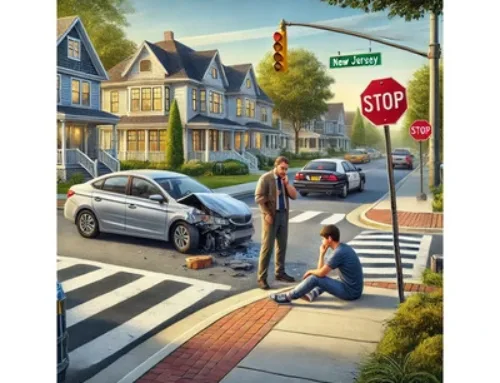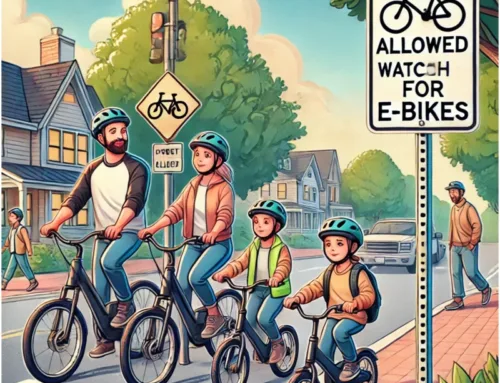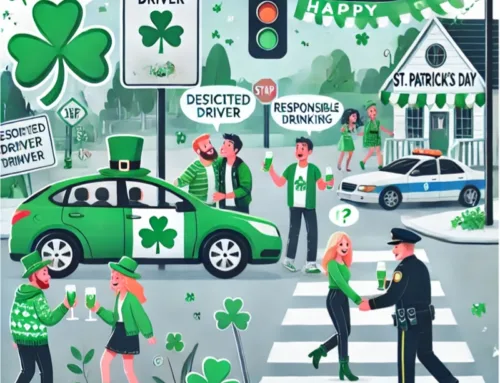There is a certain level of risk taken any time a person ventures out onto the road in a motor vehicle – and unfortunately, that risk of death or serious injury in an auto accident has been worsening since 2020, in a sharp reversal of previous safety trends. However, that known level of risk feels different when sliding into the back seat of a taxi. Rather than taking control yourself or trusting a friend or family member with your safety, riding in a taxi literally puts your life in the hands of strangers. You have to trust the driver to bring you safely to your planned destination, and you have to trust the cab company to be sufficiently rigorous in their hiring process that only safe and responsible drivers are placed behind the wheel of the company’s taxis.
 Fortunately, it seems that this trust is at least somewhat justified. A 2006 study in New York, an area well known for its extensive reliance on taxi services, revealed that taxis and livery cabs were less likely than other drivers to be involved in automotive accidents – though in the rare cases when cabs were involved in crashes, they were more likely to result in serious injuries to the passengers of the taxi. The reason for this increased injury rate is unclear from the data, though there is room for speculation: it’s likely that passengers in taxis are less likely to properly fasten their seat belts, unlike the cab drivers. The plastic partition separating the front and back seats may also pose a hazard for passengers seated in the back. In a serious crash, the passenger in a taxi may suffer injuries including:
Fortunately, it seems that this trust is at least somewhat justified. A 2006 study in New York, an area well known for its extensive reliance on taxi services, revealed that taxis and livery cabs were less likely than other drivers to be involved in automotive accidents – though in the rare cases when cabs were involved in crashes, they were more likely to result in serious injuries to the passengers of the taxi. The reason for this increased injury rate is unclear from the data, though there is room for speculation: it’s likely that passengers in taxis are less likely to properly fasten their seat belts, unlike the cab drivers. The plastic partition separating the front and back seats may also pose a hazard for passengers seated in the back. In a serious crash, the passenger in a taxi may suffer injuries including:
- head and brain injuries, including concussion/TBI (traumatic brain injury)
- neck and spine injuries, including whiplash
- bone fractures
- lacerations, contusions, or other soft tissue injuries
- organ damage
In the worst cases, these or other injuries may lead to death. This was the tragic outcome of a collision involving a taxi in Passaic County on February 28. A serious accident took place near North 3rd Street and Cliff Street at approximately 7:30 in the evening; the crash caused the taxi to catch fire, and though paramedics and firefighters responded to the scene to help the crash victims, one person succumbed to their injuries.
For an accident victim seeking injury compensation (or a loved one seeking wrongful death damages) after a taxi accident, the question of liability is a little more complicated than in your typical auto accident, or in comparison to an accident involving a ride-sharing app such as Uber. Unlike drivers for services like Uber, who are generally independent contractors and supply their own vehicles with their own insurance policies, taxi drivers are typically employees of a cab company. Depending on the circumstances of the accident and the nature of the relationship between the taxi company and their employees, the cab company itself may bear part of the liability for your injuries, alongside the driver. This is important, as a cab company is almost guaranteed to have insurance coverage sufficient to fairly compensate even the most extensive injuries.
There are a handful of ways that taxi companies can operate, and the relationship between the taxi driver and their employer will affect liability in the event that the driver is at fault for causing an accident. Many cab companies have a pool of vehicles that their employees are allowed to drive, although some companies allow their drivers to utilize their own personal vehicles as taxis or require their drivers to rent their cab from the company. Generally speaking, the party who will be responsible for your injury damages is the party that owns the vehicle, or in the case of a rental agreement between the cab company and the driver, both are liable.
Of course, as with any other automotive accident taking place in New Jersey, your first recourse for compensation in a taxi accident is through the PIP (personal injury protection) coverage of the taxi’s insurance policy. If your damages exceed that coverage or you are entitled to additional damages for pain and suffering, long-term recovery or permanent injury, or punitive damages, then your attorney would help you pursue compensation from the party responsible for causing the accident.
As with all personal injury lawsuits for automotive accidents, the statute of limitations for filing suit seeking injury damages in a taxi accident is two years. If you ever find yourself in an accident while riding in a taxi, there are a few steps you should take as quickly as possible (after, of course, ensuring that everyone is safe and seeking medical treatment for any injuries). Get the taxi driver’s name, identification number, and the contact information of the cab company, as well as the contact and insurance details of any other drivers involved. Then obtain statements and contact details from any witnesses to the accident, and take photos of the scene, the vehicles, and any injuries. All of this information may prove crucial to any subsequent injury claim.
Contact MyNJInjuryLawyer Howard P. Lesnik
If you or a loved one suffered an injury in an accident in NJ, you should contact an attorney familiar with handling these claims. An experienced NJ Injury Lawyer will know how to obtain medical records, videos, photographs, experts, locate witnesses and contact the insurance company so you can make a claim for your injuries.
My NJ Injury Lawyer Howard P. Lesnik, Esq. offers complimentary strategy sessions to address any issue or questions you may have for your injury claim in NJ.
Please contact NJ Injury Lawyer Howard Lesnik, Esq., immediately if you were involved in an accident. I personally handle NJ personal injury cases on a regular basis. Please contact me now by email, by phoning 908.264.7701, or by completing the form to the right to schedule your complimentary 30-minute strategy session. Call me direct and I will answer 5 questions that you have about your potential claim.







